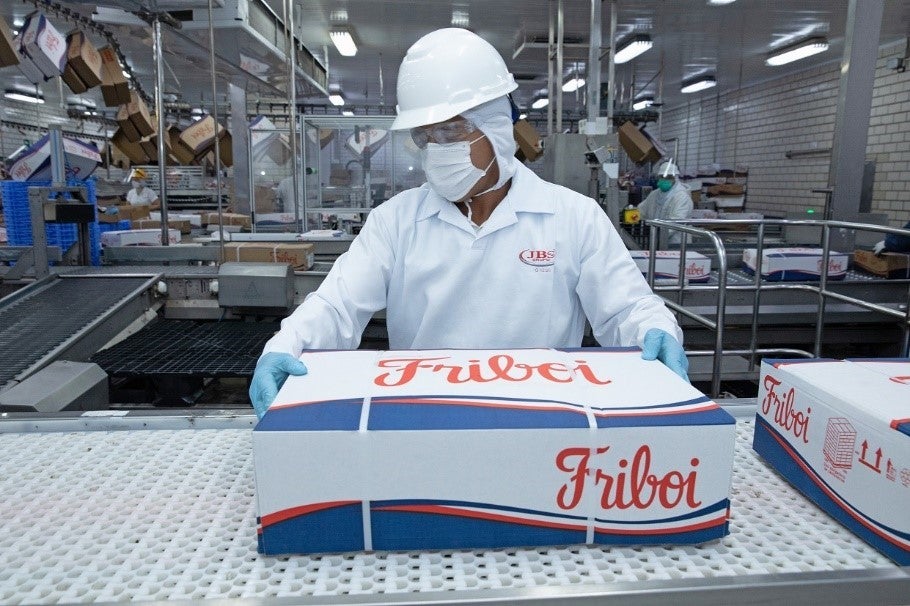
JBS CEO Gilberto Tomazoni highlighted the meat giant’s improving margins as the group booked a second-quarter loss.
The Brazil-based company posted a net loss of $53.2m for the three months to the end of June, compared to a profit of $803.2m a year earlier.
JBS’s net sales fell 3.6% to $18.1bn, dented by lower sales from its domestic operations, from its pork division, from its business in Australia and from Pilgrim’s Pride, the US-based group in which the company owns a majority stake.
The lower sales, combined with a 4% increase in the cost of goods sold and higher debt expenses, pressured JBS’s bottom line.
In the first quarter of the year, the Swift and Pilgrim’s brand owner booked a loss of 1.5bn reais ($302.2m) for the opening three months of the year, compared to a net income of 4.6bn reais in the first quarter of 2022.
Nevertheless, looking at JBS’s adjusted EBITDA margin for the second quarter (which stood at 5%), Tomazoni said the company was seeing progress. A year ago, its adjusted EBITDA margin was 11.2%. In the first quarter of 2023, that metric stood at 2.5%.
“Our promising prospects for 2023 have begun to materialise,” he said. “Although the global context remains challenging for the protein sector, we have confidence that we have started a gradual recovery of our margins.”
Second-quarter adjusted EBITDA was $902.8m, down 57.1% compared to a year earlier.
Tomazoni said JBS had reacted to an increased global supply of chicken and “tighter margins” in the US beef business by looking to improve the efficiency of its operations in Brazil and the US.
“These initiatives have already started to have an effect on our operations, as shown by the improvement of our margins, reinforcing our belief that we should focus on what we control to achieve superior financial performance in challenging scenarios like the current one for the global protein industry,” he said.
“In the coming months, we also see a scenario of a more balanced poultry supply, with potential positive impacts on sector prices, and we are already capturing the decrease in corn prices in our cost structure, a situation that also benefits our pork business.”
Last month, the group said it was revisiting plans to seek a stock-market listing in New York.
The world’s largest meatpacker completed an IPO in Sao Paulo in 2007 and had been touting a US listing since at least 2016 through its Netherlands-headquartered overseas subsidiary JBS Foods International.
However, JBS culled the plans in 2017 amid a corruption scandal centered around the company’s controlling shareholder, J&F Investimentos, and two members of the Batista family that ran the investment firm.
Tomazoni said yesterday the US listing was “a transformational move to build the company’s new growth avenues”.
He added: “Our dual listing strategy will give us more flexibility to finance our growth and de-leverage, in addition to reducing capital costs. We will have access to a broader investor base, with great financial capacity, favouring the unlocking of the value of our shares and expanding our investment capacity.”
